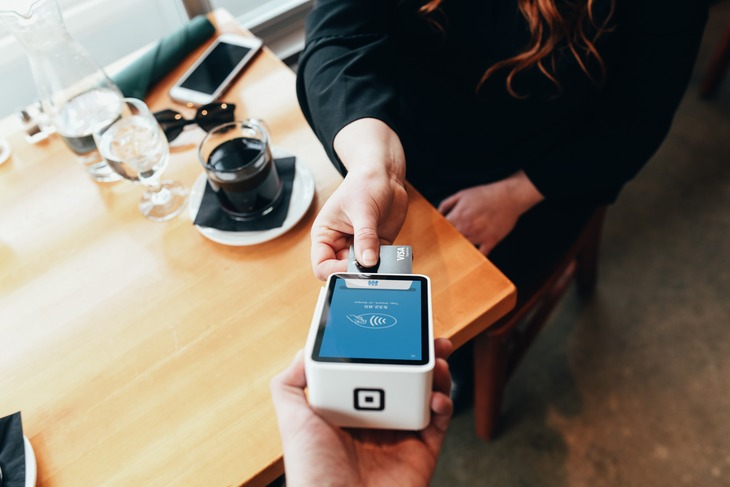Cashless Payment Options in Japan in 2025
While Japan was long known for being a cash-based economy (and to some extent it still is), over the past few years, credit cards, debit cards, and other forms of cashless payments have exploded in popularity. If you are living in Japan, now is a great time to switch to using cashless payment options.
That said, getting a credit card as a foreigner can still be tricky. In this guide, we'll walk you through how to apply, which cards are easier for expats to get, and the best alternatives like debit, prepaid, and mobile payment options.
How to Apply For a Credit Card
Before applying for a credit card, you generally need to make sure you have some combination of the following:
・Your passport
・Your Residence Card
・A Japanese bank account
・Your health insurance card
・Proof of address (this could be a utility bill or a letter addressed to you at your current address)
・Certificate of Employment
Every credit card application requires different documents or information, so some may require all of these things while others might only require a few.
When you start applying, be sure to check what you'll need to submit!
These days, you can apply for many credit cards online. Online credit card applications may be in Japanese depending on the card and company, but by using Google Translate or having someone who can read Japanese help you through the process, it should be doable.
Once you apply, you just have to wait for approval.
Key Factors That Affect Approval for Foreigners
Understanding what Japanese banks prioritize in their screening process can improve your chances of being approved for a card. Here are some of the main factors card issuers look at:
・Length of Employment and Income Stability
Credit card issuers typically prefer applicants who have been working at the same company for at least one year. A stable, full-time job with a steady monthly income increases your chances of approval.
・Visa Type and Length of Stay
Holding a long-term visa (such as a work visa, student visa, or permanent residency) is usually required. Applicants who have been living in Japan for a longer time are often considered more trustworthy by banks.
・Having a Credit History
Even if you don't yet have a Japanese credit card, you can start building your credit history by:
・Paying your mobile phone bills on time
・Paying utility bills like gas, electricity, and water consistently
・Applying for low-risk products like postpaid IC cards (for example, Mobile Suica with credit function)
Taking these steps first can make it easier to get approved for a credit card later.
Bank Account Setup: What to Know About Credit Card Automatic Withdrawals
When applying for a credit card in Japan, you'll usually need to register a Japanese bank account so your monthly balance can be automatically withdrawn. Here are a few important points to keep in mind:
・Megabanks vs Online Banks
Some credit card companies only accept major banks like MUFG, SMBC, or Mizuho for automatic withdrawals. Others also support online banks, like Rakuten Bank or SBI Sumishin Net Bank. Always check which banks are accepted before applying.
・Scheduled Withdrawal Dates
Most cards have a fixed monthly withdrawal date (such as the 10th or 27th). You'll need to make sure you have enough funds in your account before that date, since failed payments can result in:
・Late payment fees
・Suspension of your card
・Negative impact on your credit history
The Best Japanese Credit Cards for Foreigners
Getting approved for a credit card in Japan is a notoriously difficult process, and many cards offered by banks outright reject applications from non-Japanese citizens. Here are some credit cards available in Japan that are known for approving applications from foreigners.
・Rakuten Card
The e-commerce company Rakuten issues its own credit card, the Rakuten Card, which is one of the best options for foreigners looking to get a credit card in Japan. They are known for having a very high acceptance rate for foreigners, as long as your employment and work visa are all in order.
The Rakuten Card has no annual fees, and for every 100 yen you spend, you earn one Rakuten point. These points can be used on Rakuten Ichiba (Rakuten's Amazon-esque online store) or in affiliated stores. They usually also give you around 5,000 yen worth of points (or more during certain campaigns they run throughout the year) just for signing up. Some of the more premium card plans also include travel insurance. You can also set up the Rakuten Pay app on your phone and tie it to your Rakuten card to pay using your phone at any stores that accept Rakuten Pay.
Overall, the Rakuten Card may be the best option for expats in Japan. It is one of the easiest cards for foreigners to get, plus you'll earn points for using the card.
Check out the Rakuten Card website and apply here.
・Amazon Mastercard
If you plan on regularly using Amazon for shopping, then consider getting the Amazon Mastercard. It is easy to apply for (you can do so through the Amazon website) and has a high approval rate for expats.
Like the Rakuten Card, it has no annual fees, and you'll earn points for using the card that you can spend on Amazon. If you are an Amazon Prime member, you'll get an Amazon Prime Mastercard with added benefits. You earn double points for purchases made on Amazon, and 1.5 points for using the card at convenience stores.
For English instructions on how to apply, click here.
・EPOS Card
This card is offered by the Marui group, which owns all of the Marui department stores in Japan. They tend to accept applications from foreigners, and you can apply online or in person at Marui department stores.
If you apply in person, you can receive your card the same day you apply, which is a big plus, and you may also receive gift cards or other bonuses for applying in person. There may also be English-speaking staff at the department stores to help you through the application process.
There are no monthly or annual fees for this card, and you can also earn points by using it that you can spend at Marui department stores. Some plans also include travel insurance.
Check out the EPOS card application page here.
Debit Card Options
If you don't want a credit card but want to make cashless payments in Japan or online directly from your bank account, then these debit card options may be right for you.
・Wise Debit Card
You may already be familiar with Wise, a foreign exchange service that specializes in helping people easily make international money transfers between bank accounts. It's a popular way for people living in Japan to send money back home or to transfer money from their bank accounts in their home countries to their Japanese accounts.
Wise offers a debit card connected to your Wise account. All you have to do is transfer money from your regular bank account to your Wise account, and then you can choose to convert that currency into another country's or leave it as is. You could transfer US dollars to your bank account, convert them to yen, and then use the card to make purchases in Japan with the local currency. The money will be withdrawn from your Wise account immediately, just like a normal debit card.
Since the debit card is a Mastercard, it can be used anywhere that Mastercard is accepted.
To get a Wise Debit Card, you'll need to make a Wise account first. Get started here.
・Sony Bank Wallet
If you make a Sony Bank account, you'll receive this debit card. You can use it as a regular cash card/debit card in Japan, but you can also set up foreign currency accounts as well. And since it is a Visa card, it can be used at shops and ATMs all over the world and allows you to withdraw money in local currencies without having to deal with exchanging money.
The biggest draw of Sony Bank, especially if your Japanese ability is lacking, is that it offers full English support. You can apply for a bank account online in English, track spending using their app in English, and speak to English customer support should the need arise. Their English banking app has a reputation for being much easier to use than other Japanese banks' online banking systems, so if you want to easily do your banking online and have a debit card you can use for cashless payments, Sony Bank could be for you.
Learn more and get started here.
Electronic Payment & Prepaid Card Options
Prepaid cards, as well as electronic payments, are now widely accepted across Japan. If you don't want or can't get a Japanese credit card, or are just traveling in Japan, prepaid cards are an excellent option since you don't need to have a credit check or bank account to get one. You simply load money onto the card and start using it. Some prepaid cards can be used to make purchases online, and reloading the card with money when you run low can make managing your funds a little easier than with a credit card.
Note, however, that not all shops in Japan accept prepaid cards and electronic payments. In particular, small businesses often only accept cash or credit cards. Some reservations or deposits cannot be made with prepaid cards, such as when booking a hotel or renting a car. Also, some shops that accept electronic payments only accept specific ones, so if you use an electronic payment service that isn't accepted, you are out of luck.
Here are some Japanese and international prepaid cards and electronic payment options that you can use in Japan.
・Suica Card
This prepaid IC card issued by JR East is primarily used to pay for public transportation in Japan, but it can also be used at many shops, convenience stores, and vending machines. It can be reloaded at ticket machines in stations, convenience stores, and via the Suica app, making it easy to put money on this card. You can also set up Suica in your Apple Wallet if you have an iPhone, allowing you to use it for electronic payments too.
・PayPay & PayPay Card
PayPay is one of the most popular mobile payment apps in Japan and the most widely accepted. If you do not want to use the app, it is possible to get a physical prepaid card. PayPay runs many promotions and cashback offers as well.
Learn more here. (Japanese only)
・Apple Pay & Google Pay
Both Apple Pay and Google Pay are widely accepted at restaurants and stores that accept contactless payments. You can continue to use the cards you already have linked to these services from your home country, or link Japanese credit cards or prepaid cards like Suica to them as well.
・Alipay (支付宝) & WeChat Pay (微信支付)
Both Alipay and WeChat Pay are accepted at many stores, restaurants, and tourist attractions in Japan, especially in major cities. Plus, both services support payments in multiple currencies, making them both convenient if you are traveling or living in Japan and already using these services.
Get Ready to Go Cashless!
With the number of options usable in Japan increasing every year, cashless payments are looking like they will soon be the norm in Japan. Now is a great time to stop carrying around piles of cash and start paying by card or app, using one of the many options available to you.


























